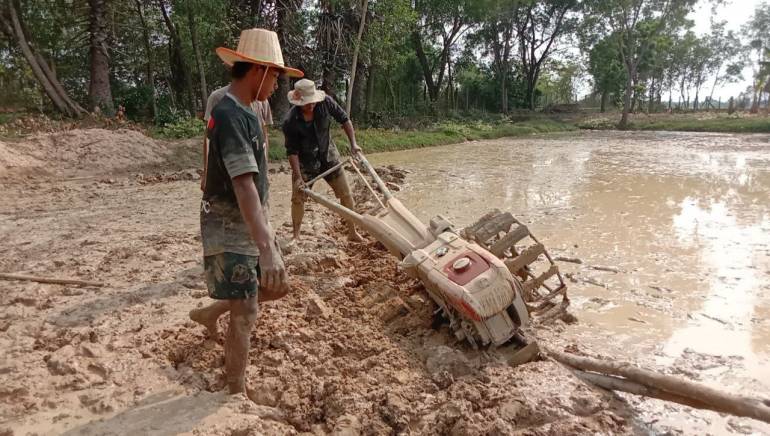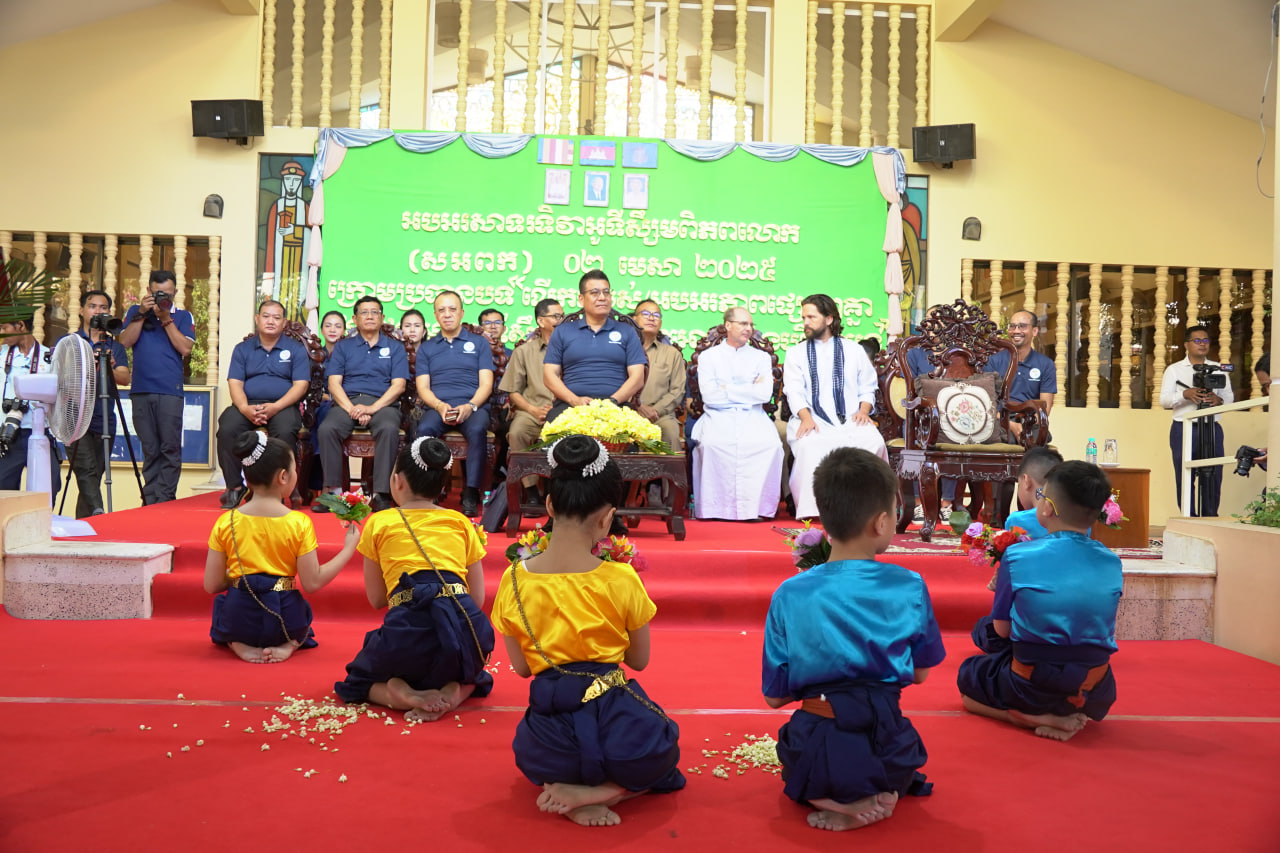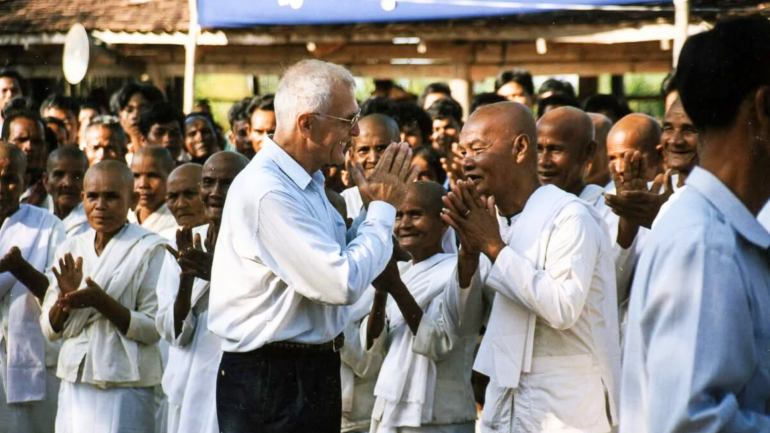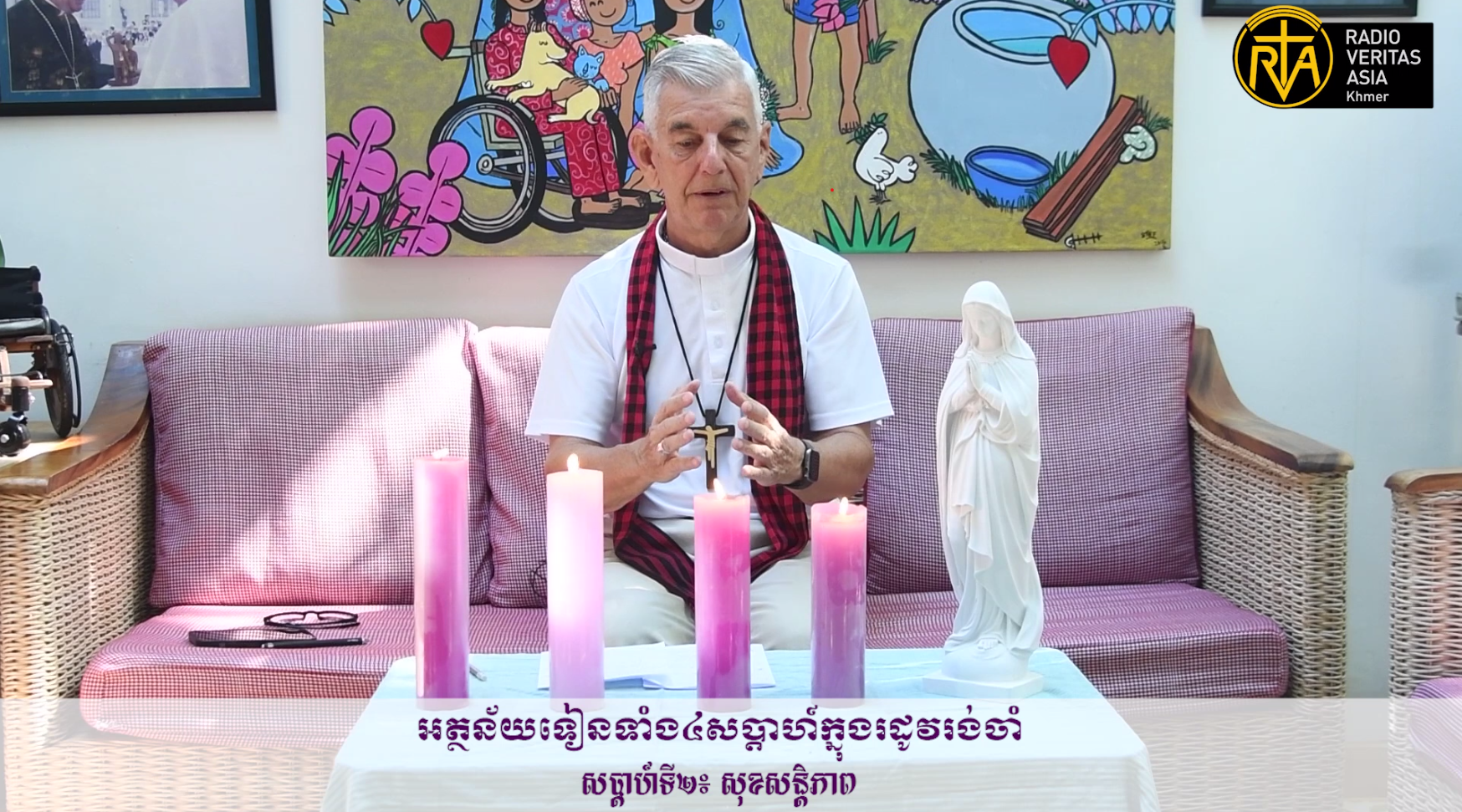The agricultural sector of the Saint Theresa of the Child Jesus Church Prey Kabbas community has played a significant role in facilitating the conversion of the residents of Chheuteal Hamlet to Catholicism using its philanthropic mission and the dissemination of religious teachings.
According to Father John Penh, a priest responsible for overseeing the church, the agricultural sector plays a crucial role in fostering connections between the community and marginalized groups, including impoverished individuals, expectant mothers, and the elderly. This connection is facilitated through the sale and distribution of various commodities, such as fish, vegetables, and fruits.
At the same time, this prompt has incited the conversion of villages and church personnel to Catholicism. According to Father Penh, the catechism class in the previous month consisted of two staff members and two elderly individuals.
Mr. Kem Daro, a catechist student and staff member of the church, claimed that the church’s agricultural initiative had made it easier for him to interact with the neighborhood and piqued his interest in the Catholic faith.
Daro added, “Some of the grandparents also got to know the church through agriculture, like me, because we helped distribute cabbage and fish to them, and later they came to church, got to know the priest, and joined catechism class like me.”
The church farming project was established in the year 2019, encompassing a land area of 4 hectares located in Chheuteal village, Prey Pdao commune, Prey Kabas district, Takeo province. This region is situated in the eastern part of Cambodia, approximately 70 kilometers away from Phnom Penh, the capital city.
This project has not only assisted individuals experiencing poverty, but it also has the potential to create revenue that can be allocated toward supporting various church initiatives.
“Currently we have rice fields, vegetable gardens, cow and fish farms, as well as coconut trees, all of which provide income to the church,” Fr. Penh confirmed.
Mr. Loch Tongnai, the manager of the church’s Agriculture sector, said that there is a growing demand that has prompted the church to consider expanding its farm operations. However, the hydroponic vegetable sector is now facing challenges in finding a suitable market.
“However, the hydroponic vegetable in question has the potential to generate revenue for the church, with monthly harvests ranging from 350 kg to 400 kg,” Tongnai explained.
According to Tongnai, the agricultural practices within the Prey Kabbas community have facilitated his acquisition of information about farming techniques, animal husbandry, and pisciculture. Additionally, these agricultural activities have the potential to generate employment opportunities for individuals with disabilities, thereby enabling them to sustain their households.
In addition to its agricultural activities, the Prey Kabbas community also provides a hospitable facility for Catholics seeking a space for prayer and meditation.
The inception of the Prey Kabbas community took place in 2010, initially including a single Catholic member. Over the subsequent decade, precisely 67 individuals of the Catholic faith have undergone the sacrament of baptism inside this community.
by RVA Khmer News Service






